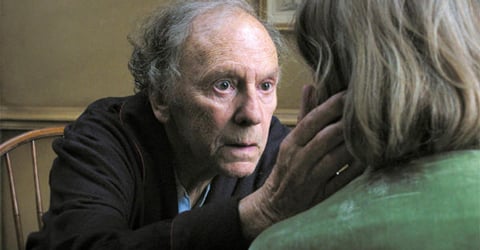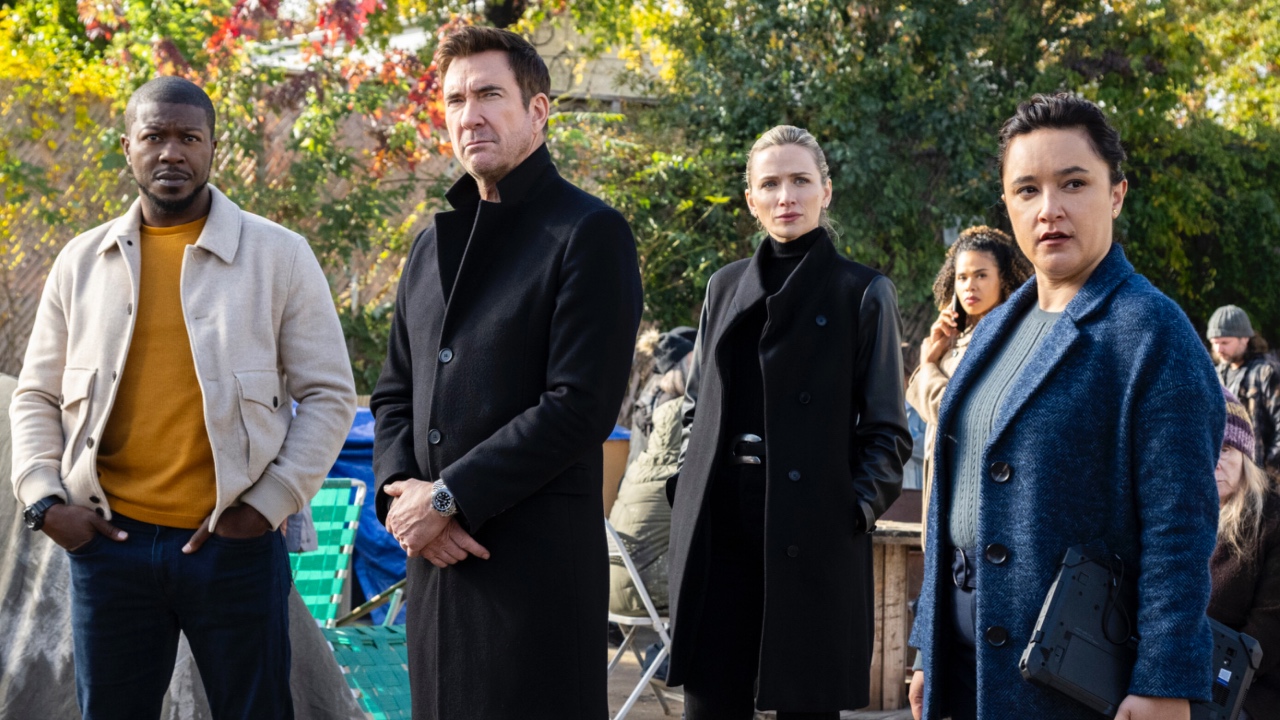For Your Consideration: Amour Is The Most Honest Best Picture Nominee

From now until the Friday before the Oscars we'll be running daily pieces about why a film does or does not deserve Best Picture. Here is Katey fighting for for Michael Haneke's Amour!
Amour looks nothing like any of its fellow Best Picture nominees. In fact, it looks nothing like any of the Best Picture nominees of the last 20 years. It's a foreign film, of course, which puts it in the company of just four other foreign language films nominated for Best Picture since 1993. But more than that, it's everything a Best Picture nominee usually isn't-- small, bleak, unsentimental, and utterly uninterested in helping the audience through its barrage of intense feelings.
That, of course, is exactly why it deserves to win. Amour is beyond a dark horse in this year's Best Picture field, to the point that it feels like a miracle that it was even nominated. A Palme d'Or winner at Cannes last May, and a critically beloved effort from the almost always critically beloved Michael Haneke, Amour seemed like exactly the kind of lauded film that never gets anywhere near the Oscars. Then it up and got five nominations, all of them major-- Best Picture, Best Director, Best Actress, Best Original Screenplay and Best Foreign Language Film. It may not win any of them. But to win the biggest one, Best Picture, could mean the most of all.
Amour, more than any of its fellow nominees, captures the essence and intensity of the human experience. It is a tiny story, about an elderly French couple (Jean-Louis Trintignant and Emmanuelle Riva) whose comfortable lives unravel when the wife Anne suffers a stroke and begins the agonizing process of dying. But its deliberately broad title tells the truth. This is a movie about the purest, realest kind of love, and the kind of that happens countless times every day-- one person, committed to care for another, and sticking through everything awful that comes at the end. Amour is the absolute best-case scenario for a relationship, the final coda after the rom-com clinch in which the guy gets the girl. If you are very lucky, you will watch the person you love the most die at an advanced and fragile age-- or you will force that person to watch it happen to you.
Nearly everything mainstream cinema produces is designed to avoid talking about this, and for valid reasons-- people see this enough in real life without having to pay for it onscreen. But that's exactly what makes Amour so bracing and effective. Taking the genre that's been so battered and abused by Hollywood, Michael Haneke creates a romance that makes the entire notion of love feel new-- brutal and heartbreaking, yes, but new. In a time when people are living longer and dying in ways our ancestors couldn't comprehend, Amour is remarkably modern story, and one that all of us lucky to be young and healthy recognize will come our way. I intended to watch Amour a second time before Oscar season truly began, but after my grandmother passed away in December, I knew I couldn't bear it. It was too real.
Meticulously made and unflinching even in its most difficult moments, Amour is the most honest and original of the Best Picture nominees. It is a great movie that is deserving of Best Picture on its own merits, but its win would really be a statement from an industry that has shown its own tentative steps toward broadening its horizons in recent years (hey, last year's Best Picture winner was technically French, after all). Movies that are dark and artsy and French aren't supposed to stand a chance at winning Best Picture. But who says it has to be that way forever?
CINEMABLEND NEWSLETTER
Your Daily Blend of Entertainment News
Staff Writer at CinemaBlend










